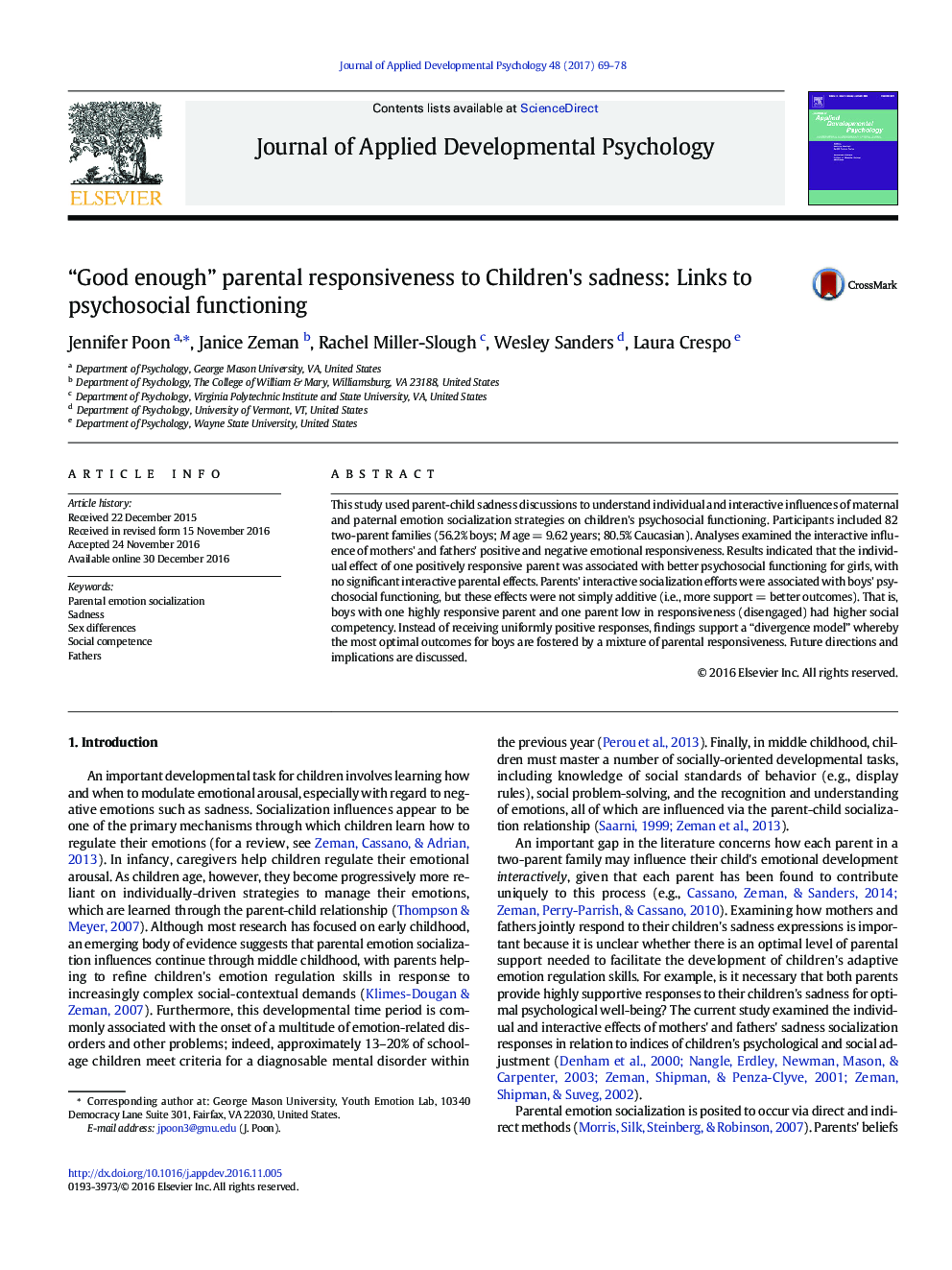| کد مقاله | کد نشریه | سال انتشار | مقاله انگلیسی | نسخه تمام متن |
|---|---|---|---|---|
| 4939183 | 1435940 | 2017 | 10 صفحه PDF | دانلود رایگان |
- Parents' sadness socialization responses yield different effects for boys vs girls.
- For girls, having 1 supportive parent was linked to positive psychosocial outcomes.
- For boys, 1 responsive +Â 1 disengaged parent was linked to higher social competency.
- Parental responses to boys' sadness support a “divergence model” of socialization.
This study used parent-child sadness discussions to understand individual and interactive influences of maternal and paternal emotion socialization strategies on children's psychosocial functioning. Participants included 82 two-parent families (56.2% boys; M age = 9.62 years; 80.5% Caucasian). Analyses examined the interactive influence of mothers' and fathers' positive and negative emotional responsiveness. Results indicated that the individual effect of one positively responsive parent was associated with better psychosocial functioning for girls, with no significant interactive parental effects. Parents' interactive socialization efforts were associated with boys' psychosocial functioning, but these effects were not simply additive (i.e., more support = better outcomes). That is, boys with one highly responsive parent and one parent low in responsiveness (disengaged) had higher social competency. Instead of receiving uniformly positive responses, findings support a “divergence model” whereby the most optimal outcomes for boys are fostered by a mixture of parental responsiveness. Future directions and implications are discussed.
Journal: Journal of Applied Developmental Psychology - Volume 48, JanuaryâFebruary 2017, Pages 69-78
